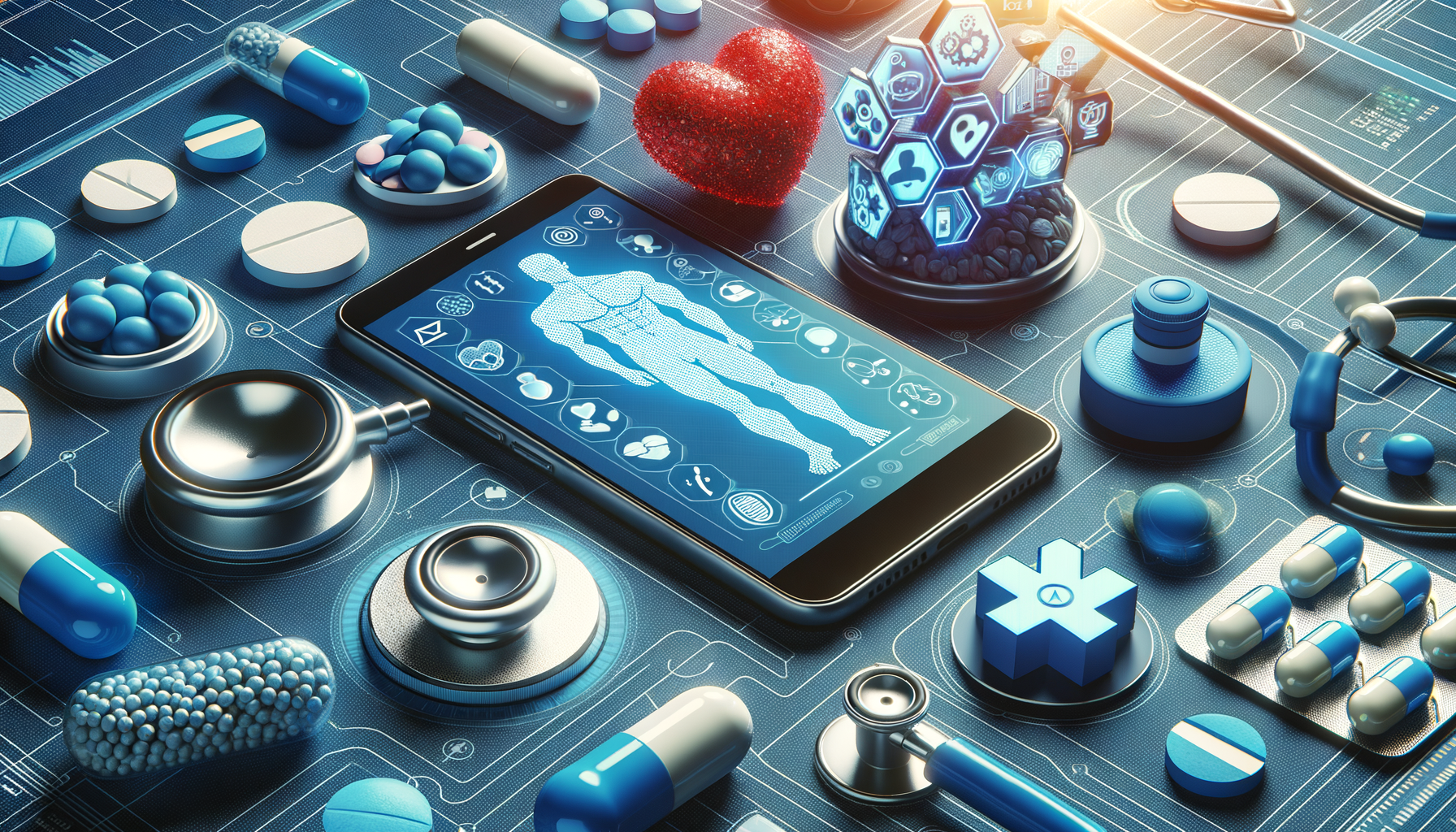Digital Health Services for Erectile Dysfunction
Erectile dysfunction (ED) is a common concern affecting millions of men, yet many avoid seeking help due to embarrassment or inconvenience — fortunately, digital health services are changing that by offering private, accessible, and expert-backed solutions from the comfort of home.

Understanding Erectile Dysfunction and Its Impact
Erectile dysfunction (ED) is a prevalent condition that affects a significant number of men worldwide. It is characterized by the inability to achieve or maintain an erection sufficient for satisfactory sexual performance. While occasional difficulties are normal, persistent issues can affect self-esteem, relationships, and overall quality of life. Understanding the underlying causes of ED is critical in addressing the problem effectively. Factors contributing to ED can be both physical and psychological, including cardiovascular diseases, diabetes, hormonal imbalances, stress, and anxiety.
ED is not just a physical issue; it also carries emotional and psychological burdens. Men experiencing ED often report feelings of embarrassment, leading to avoidance of intimate situations. This can result in strained relationships and decreased life satisfaction. Therefore, addressing ED requires a comprehensive approach that considers both medical and emotional aspects. The good news is that various treatment options are available, and with advancements in digital health services, accessing these treatments has become more convenient and discreet.
Traditional Treatment Options for Erectile Dysfunction
Before the advent of digital health services, traditional treatment options for ED were primarily focused on medications, therapy, and lifestyle changes. Oral medications, such as phosphodiesterase type 5 inhibitors, have been widely used and are known for their efficacy in improving erectile function. These medications work by increasing blood flow to the penis, facilitating an erection in response to sexual stimulation. However, they may not be suitable for everyone, especially those with certain health conditions or who are taking specific medications.
In addition to medications, therapy can play a crucial role in treating ED, particularly when psychological factors are involved. Counseling or therapy sessions with a qualified professional can help address issues such as anxiety, depression, or relationship problems that may contribute to ED. Lifestyle changes, including regular exercise, a healthy diet, and quitting smoking, are also recommended to improve overall health and reduce the risk of ED.
While these traditional methods have been effective for many, they often require multiple visits to healthcare providers, which can be time-consuming and inconvenient. This is where digital health services come into play, offering a more accessible and private way to manage ED.
The Rise of Digital Health Services
Digital health services have revolutionized the way healthcare is delivered, making it more accessible and convenient for individuals seeking treatment for conditions like ED. These services leverage technology to provide medical consultations, prescriptions, and follow-up care through online platforms. For men dealing with ED, digital health services offer several advantages, including privacy, ease of access, and expert guidance without the need for in-person visits.
One of the significant benefits of digital health services is the ability to consult with healthcare professionals from the comfort of one’s home. This is particularly appealing for individuals who feel embarrassed or uncomfortable discussing ED in a face-to-face setting. Online platforms typically involve a straightforward process where users fill out a medical questionnaire, which is then reviewed by a licensed healthcare provider. Based on the information provided, a treatment plan is developed, and medications can be prescribed if appropriate.
Moreover, digital health services often provide ongoing support and follow-up care, ensuring that patients can manage their condition effectively over time. This continuous care model helps address any concerns or side effects that may arise, enhancing the overall treatment experience.
Comparing Digital and Traditional ED Treatments
When comparing digital health services to traditional ED treatments, several factors come into play, including accessibility, convenience, and patient satisfaction. Traditional treatments often require multiple appointments with healthcare providers, which can be a barrier for those with busy schedules or limited access to medical facilities. In contrast, digital health services offer a more flexible approach, allowing patients to receive care at their convenience.
Privacy is another significant advantage of digital health services. Many individuals feel uncomfortable discussing ED in person, which can prevent them from seeking help. Digital platforms provide a discreet way to access medical advice and treatment, reducing the stigma associated with ED. Additionally, the ability to obtain prescriptions online and have medications delivered directly to one’s home adds to the convenience factor.
However, it’s important to note that digital health services may not be suitable for everyone. In cases where a physical examination or more complex medical intervention is required, traditional healthcare settings may be necessary. Therefore, individuals should carefully consider their specific needs and consult with healthcare professionals to determine the most appropriate treatment approach.
Future Prospects of Digital Health in ED Treatment
The future of digital health in ED treatment looks promising, with ongoing advancements in technology and healthcare delivery models. As digital platforms continue to evolve, they are likely to offer even more personalized and comprehensive care options for individuals with ED. For instance, the integration of artificial intelligence and machine learning could enhance diagnostic accuracy and treatment recommendations, leading to improved patient outcomes.
Moreover, the expansion of telemedicine and remote monitoring technologies will enable healthcare providers to offer more holistic care, addressing not only the physical aspects of ED but also the psychological and emotional components. This integrated approach can lead to more effective and sustainable treatment outcomes, improving the overall quality of life for individuals affected by ED.
As digital health services become more widely accepted and utilized, they have the potential to transform the landscape of ED treatment, making it more accessible, efficient, and patient-centered. By embracing these innovations, healthcare providers can better meet the needs of their patients, ultimately enhancing the quality of care and satisfaction.